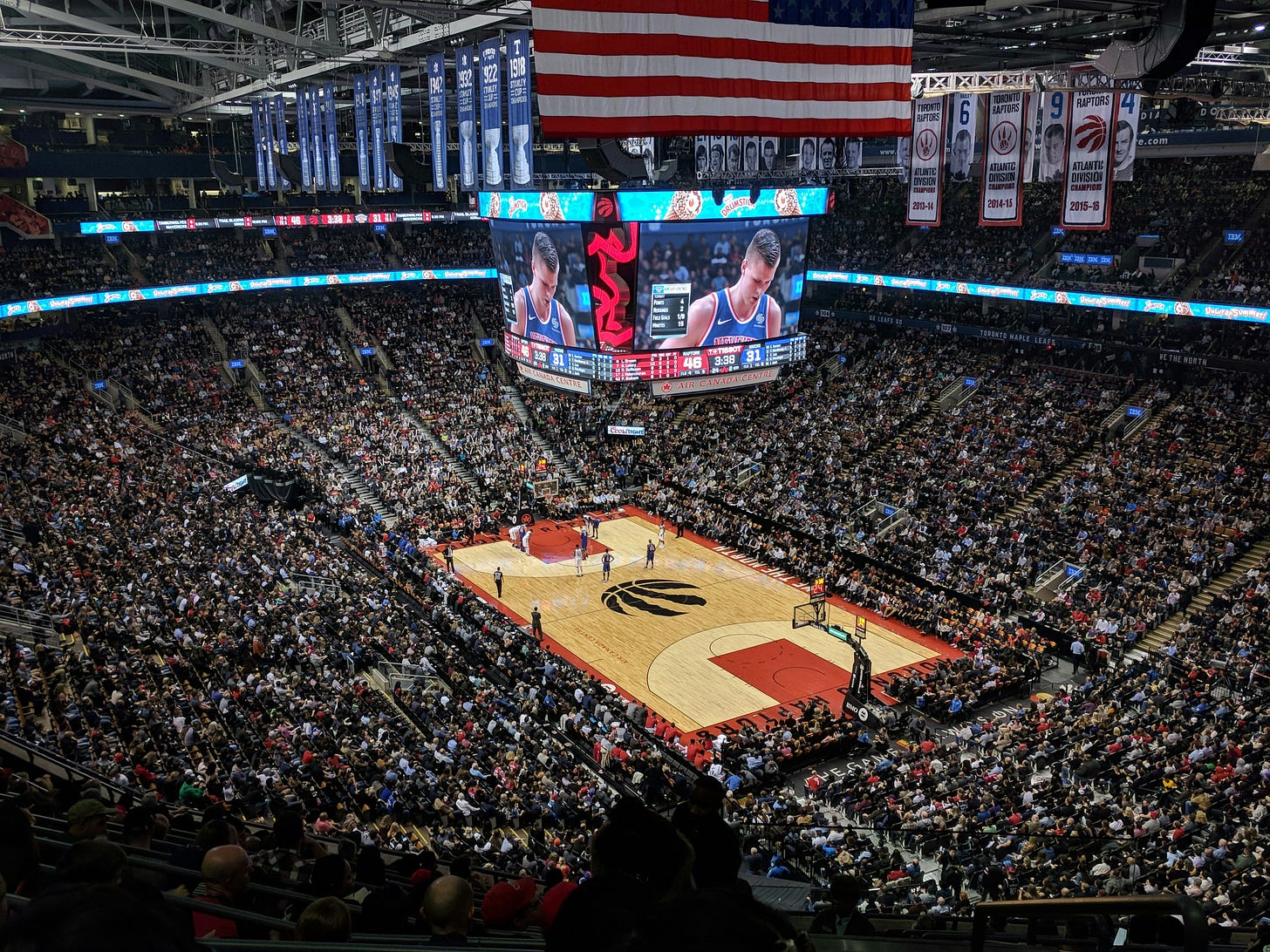How Sports Leagues and Teams are Joining the Accelerator Game
From Big Tech to Big Leagues: The Evolving Landscape of Sportstech Accelerators
1. The First Whistle
In our last newsletter, we explored the cutting-edge technologies revolutionising sports broadcasting. Today, we're shifting gears to examine another exciting trend in the sportstech world: the proliferation of accelerator programmes run by sports leagues and individual teams.
Once the domain of venture capital firms and tech giants, sportstech accelerators are now being embraced by the very organisations they aim to serve. This shift is democratising innovation in sports, creating new opportunities for startups and reshaping how the industry approaches technological advancement.
Join us as we dive into this game-changing trend and explore its implications for the future of sports technology. From the sidelines to the boardroom, innovation is now everyone's playing field.
2. The Evolution of Sportstech Accelerators
Traditionally, sportstech accelerators were the domain of big tech companies and venture capital firms. These programmes, while valuable, often lacked the deep industry connections and sports-specific expertise that startups in this niche desperately needed.
Enter the sports industry itself. Recognising the potential to drive innovation from within, major sports leagues began launching their own accelerator programmes. The NFL's 1st & Future competition, launched in 2015, was an early pioneer in this space. Soon, other leagues followed suit, with the NBA, MLB, and others creating their own initiatives.
This shift marked a significant change in how the sports world approached innovation. No longer content to be passive consumers of technology, leagues positioned themselves at the forefront of development. By providing startups with direct access to industry knowledge, resources, and potential customers, these programmes began to reshape the sportstech landscape.
As we'll explore, this evolution didn't stop at the league level. Individual teams have now entered the fray, further democratising the innovation process.
3. Why Sports Leagues are Launching Their Own Accelerators
Sports leagues have recognised the immense potential of nurturing innovation from within. By launching their own accelerator programmes, leagues are taking a proactive approach to shaping the future of their sport and fan experience.
One primary motivation is the ability to drive innovation that directly addresses the league's specific challenges and opportunities. Whether it's enhancing fan engagement, improving player performance, or streamlining operations, league-run accelerators can focus on the most pressing issues facing their sport.
Moreover, these programmes give leagues a competitive edge in an increasingly tech-driven industry. By fostering cutting-edge technologies, leagues can stay ahead of the curve and maintain their relevance in a rapidly evolving entertainment landscape.
A prime example of a successful league-run accelerator is the NFL's 1st & Future programme. Launched in 2015, this annual event combines a pitch competition with a research challenge, focusing on player health, safety, and performance. The programme has not only spawned numerous innovations but has also positioned the NFL as a leader in sports technology and player welfare.
Other leagues, such as the NBA with its Launchpad programme, are following suit, each tailoring their accelerator to address their unique ecosystem needs and future vision.
4. Team-Led Accelerators: A New Frontier
The trend of sports-specific accelerators has now trickled down to individual teams, marking a new frontier in sportstech innovation. This move allows teams to cultivate technologies that can give them a competitive advantage both on and off the field.
For teams, running an accelerator programme offers multiple benefits. Firstly, it provides early access to emerging technologies that could enhance player performance, improve fan engagement, or optimise business operations. Secondly, it serves as a talent acquisition pipeline, allowing teams to identify and potentially hire innovative minds in the sportstech space.
Lastly, successful startups from these programmes can open up new revenue streams for teams through partnerships or equity stakes.
A standout example of a team-led accelerator is the Los Angeles Dodgers Accelerator. Launched in 2015, it was one of the first team-run programmes in major league sports. The accelerator has nurtured startups in areas ranging from fan engagement and youth sports to data analytics and sports nutrition.
The success of such programmes has inspired other teams across various sports to follow suit. From European football clubs to NBA teams, we're seeing a growing number of team-led accelerators, each reflecting the unique culture and priorities of their parent organisation while contributing to the broader sportstech ecosystem.
5. The Impact on Startups and Entrepreneurs
The proliferation of sports-specific accelerators has opened up unprecedented opportunities for sportstech startups. Entrepreneurs now have direct access to industry insiders, potential customers, and specialised resources tailored to the sports ecosystem.
This shift is exemplified by initiatives like The Collectiv, a community-powered venture capital fund focused on early-stage sportstech companies and emerging leagues. NFL star Kayvon Thibodeaux's recent partnership with this $20 million fund showcases how athletes themselves are getting involved in nurturing innovation.
However, this new landscape also presents challenges. Startups must navigate complex relationships with multiple stakeholders, balancing the interests of their accelerator partners with their own growth objectives. The increased competition for spots in these prestigious programmes has also raised the bar for entry.
Despite these challenges, the benefits are clear. Startups gain invaluable insights into the sports industry's inner workings, allowing them to tailor their products more effectively and accelerate their path to market.
6. Key Focus Areas for Sportstech Accelerators
Sportstech accelerators are zeroing in on several key areas that promise to reshape the sports industry. The newly launched MLS Innovation Lab provides insight into these priorities, focusing on three core areas:
Player Development: Accelerators are investing in technologies that enhance athlete performance, injury prevention, and training methodologies. This includes advanced wearables, AI-powered analytics, and personalised training programmes.
Fan Engagement: With the ongoing challenge of attracting and retaining fans, especially younger demographics, accelerators are prioritising innovations that enhance the fan experience. This includes augmented reality applications, personalised content delivery, and interactive social platforms.
Media Technology: As the media landscape evolves, accelerators are focusing on startups that can revolutionise how sports content is created, distributed, and consumed. This includes AI-driven highlights, immersive viewing experiences, and novel streaming technologies.
Moreso, many accelerators are expanding their focus to include:
Sustainability Solutions: With growing awareness of environmental issues, accelerators are prioritising startups that offer sustainable solutions for sports venues and events.
Emerging Technologies: This includes blockchain for secure ticketing and fan tokens, NFTs for digital collectibles, and virtual reality for remote fan experiences.
7. The Global Perspective
The sportstech accelerator trend is not confined to any single region; it's a global phenomenon with unique expressions in different parts of the world.
In the Middle East, for example, Qatar SportsTech has emerged as a leading accelerator programme for innovative companies in the sports industry. This initiative reflects the region's growing investment in sports and its ambition to become a global hub for sportstech innovation.
Europe has seen football clubs like Arsenal and Barcelona launch their own innovation hubs, while in Asia, accelerators like the Hype SPIN® Accelerator in Taiwan are nurturing local sportstech ecosystems.
These global initiatives are fostering cross-border collaborations and knowledge exchange. They're also helping to address region-specific challenges and opportunities, from using technology to develop talent in emerging football markets to creating solutions for extreme weather conditions in certain climates.
As this global network of accelerators grows, we're likely to see an increasingly diverse and innovative sportstech landscape emerge.
8. The Role of Traditional Accelerators and VCs
While sports leagues and teams are increasingly launching their own accelerators, traditional accelerators and venture capital firms continue to play a vital role in the sportstech ecosystem. These entities bring a wealth of experience in nurturing startups and often have extensive networks that span beyond the sports industry.
Many traditional accelerators have adapted by creating sports-specific tracks or partnering with sports organisations. For instance, Techstars has collaborated with various sports entities to run specialised programmes.
Venture capital firms are also evolving their approach. Some, like The Collectiv, are creating sports-focused funds that bring together athletes, executives, and industry leaders. This model combines the financial acumen of traditional VC with the deep industry knowledge of sports insiders.
The coexistence of traditional and sports-specific accelerators creates a rich, diverse ecosystem that offers startups multiple pathways to success, depending on their specific needs and goals.
9. The Future of Sportstech Accelerators
As we look to the future, several trends are likely to shape the evolution of sportstech accelerators:
Increased Specialisation: We may see accelerators focusing on niche areas within sportstech, such as esports, sports betting, or specific sports.
Global Collaboration: Cross-border partnerships between accelerators could become more common, fostering a truly global sportstech ecosystem.
Integration of Emerging Technologies: Accelerators will likely place greater emphasis on technologies like AI, blockchain, and extended reality as they become more prevalent in sports.
Sustainability Focus: As sports organisations prioritise environmental responsibility, accelerators may increasingly seek startups offering sustainable solutions.
Athlete-Led Initiatives: Following the model of players like Kayvon Thibodeaux, we may see more athletes launching or partnering with accelerators and VC funds.
These trends suggest an exciting future for sportstech innovation, with accelerators playing a central role in shaping the industry's technological landscape.
As we conclude this deep dive into the world of sportstech accelerators, it's clear that we're witnessing a transformative era in sports innovation. From leagues and teams to athletes and traditional VCs, stakeholders across the sports ecosystem are actively involved in nurturing the next generation of game-changing technologies.
We invite you to be part of this exciting journey. Share this newsletter with fellow sportstech enthusiasts, and let's build a community passionate about the future of sports. Stay tuned for our next edition, where we'll explore the cutting-edge technologies reshaping winter sports. From smart ski equipment to AI-powered training tools, we'll uncover how technology is transforming the slopes and ice rinks.
Together, let's continue to push the boundaries of what's possible in the world of sports technology.






